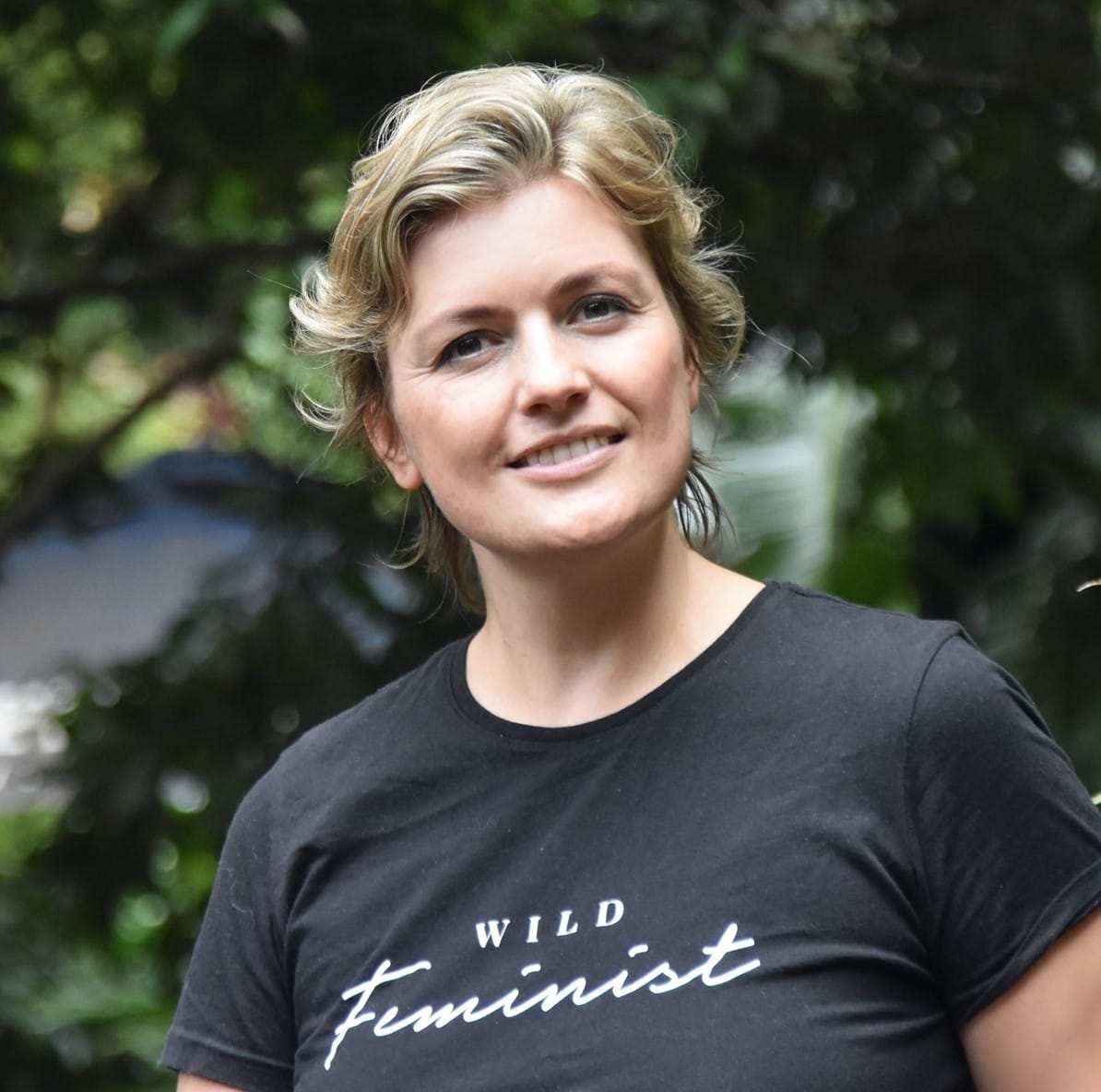By Anna Kochetkova
With the repeal of Roe v. Wade across the seas, here in Australia as a white migrant bisexual woman, my body is grounded in many of my identities, stronger than ever. Just as Black Lives Matter urgently thrust me into the beginning of my “bisexual becoming” back in 2019, the overturn of Roe v. Wade has reminded me that my body and mind aren’t mine. And that I wholeheartedly refuse to comply.
There was a time when I accepted this. As a good student of my cultural indoctrination, I embodied the teachings of my community in Russia, where I was born and spent the first 22 years of my life.
In Russia, our patronymic (otchestvo) name is a great example of our bodies belonging to others, as otchestvo is derived from one’s father’s first name. Accordingly, everyone in Russia belongs to their fathers.
Patriarchy is a well-known form of oppression and control. But there was a time when I didn’t know this word and hated feminists. Activists and social justice slogans seemed irrational and silly to me. My survival stood above my enlightenment, and I spent most of my years in the darkness and servitude of oppression and patriarchy.
Today, the overturn of Roe makes me furious and disappointed. However, I suspect that if I were watching this historical moment from Russia, I would have not felt the same way. I’ll never know for sure. But my fury and disappointment give me hope: if my understanding and beliefs have changed, others’ can, too.
Looking back at my life, I recognize distractions that kept me “in line” and obedient. It wasn’t my father’s name but the learnt mistrust of all women, the overwhelming desire to be thin, young, and loved (by cis het white men). My tiredness from over-working, under-eating and eternally competing made it impossible for me to think or feel. If all else failed, alcohol was an acceptable sedative.
In Russia, confusion reigns. It’s a common strategy for keeping people silent and obedient. Many people in Russia say that no one can tell what’s true and what’s not. I remember feeling that way—it’s soaked in hopelessness, sprinkled with mistrust, and is served cold.
However, as I suspect many in Russia do, I felt a small, almost unnoticeable sense that my confusion was unnatural, manufactured somehow. Today, after over a decade of living apart from Russian indoctrination, I can clearly see the successfully manufactured distraction—the sense of perpetual confusion, hopelessness, and danger from abroad.
Over the last few years, I started to realize the distraction of work and of my poverty mindset, both of which ensured that I didn’t stop producing, worked late, and worried about money above all else, ignoring my environment, nature, even wars. I didn’t notice any of Russia’s invasions until one day it stared into my face via the social media of my friends in Ukraine.
And as I was grieving the atrocities of Russia at the beginning of the war, something inside me kept pulling me back to my work desk: “Enough of this crying! You have a client meeting in an hour.” We are often paralyzed by the need to make money, raise children, and climb career ladders, unable to properly care for our mental health or rest enough. The way patriarchy weaves capitalism and individualism into our lives often keeps us exhausted, afraid, alone. In Australia, people exhibit pride in “having a lot on,” while feeling inadequate about “lazy weekends,” “guilty pleasures,” and “doing nothing”—rare moments of freedom which are often followed by the watchful eye of shame and guilt. There are many more distractions that impact our capacity to think, create, fight back.
As I feel enraged by Roe, I remember all the women who came before me and fought for our rights to vote, wear pants, own property and one’s self.
I cannot help but feel deep sadness and grand gratitude for the work done and lives lost in the name of my freedom today.
As women’s rights start to slip away, the fight of my generation begins.
Dangerous and proud, queer women all around the globe are remembering who they are. I know patriarchy is trembling with fear. As more of us become aware of distractions and begin our healing, more white cis het bigoted men may try to lasso us, bottle us, and threaten us. But it’s too late! We reject the lies and stories of patriarchy and unite to love and support one another and reclaim ourselves. I saw it happen within me. I know it’s happening all around me.
Anna Kochetkova is a Russian-born Australian author and poet, bi+ activist living on the Land of the Gadigal Peoples of the Eora Nation (a.k.a. Sydney, Australia). Anna is the author of Bi & Prejudice and the curator of the @biandprejudice Instagram community.

